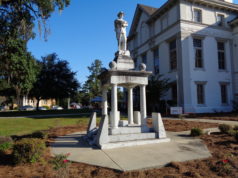
And now, the next president of the United States! David Walker!
Huh? Yeah, you know, David Walker.
The former comptroller general of the United States.
The guy who has been traveling around the country for years saying sensible things about money. That David Walker.
The guy New York Times columnist Thomas Friedman was touting as a latter-day H. Ross Perot and third-party candidate in his column last Sunday.
The guy Politico blogger Alexander Burns says has put out “an intriguing statement” on the anniversary of Ross Perot’s presidential announcement.
That David Walker. Walker’s “intriguing statement” said Ross Perot ran on four key issues: “fiscal responsibility on the part of both Democrats and Republicans, political dysfunction in Washington, lack of trust in government and declining confidence in the future” — essentially the same issues that are agitating large numbers of voters today.
“Today, we are worse off on all four counts,” the intriguing statement goes on. “Therefore, we need another Ross Perot-style issue campaign to provide the American people with the facts, the truth, the tough choices and some sensible solutions to restore fiscal sanity.”
And might it be possible that David Walker thinks he just might be the next Ross Perot? Intriguingly, the email from Walker to Politico’s Burns that contained Walker’s statement also pointed reporters to Friedman’s column, floating the idea of a third-party candidacy by David Walker.
Equally intriguingly, Burns says Walker’s name has come up in association with a number of centrist and third-party efforts for 2012, including those of an organization called “Americans Elect.”
Like David Walker, Americans Elect is not exactly a household name, but it should be taken seriously. The organization is using the Internet to sign up 5 million or more registered voters (nearly 2.5 million have joined so far), who will then use Internet voting to nominate a presidential ticket, which the group intends to put on the ballot in all 50 states.
The reason Americans Elect should be taken seriously is that as of Feb. 6 it had qualified to have its putative ticket on the ballot in 16 states (including Colorado), with certification pending in two others and ballot access activities under way in 17 more.
In other words, Americans Elect could very well provide the portal for a David Walker or some other non-party candidate to make a serious run at the White House — in theory.
So what are we to make of all this? Since the Civil War, all third-party candidates for president have flopped — as Friedman, Burns and Walker all acknowledge. They all argue that the real value of third-party candidacies lies in their shaping of the national political conversation and in bringing forward ideas and policies that are ultimately embraced by the major parties.
But most intriguingly, Messrs.
Friedman, Burns and Walker all neglect to mention the most substantive result of Ross Perot’s 1992 campaign — it made Bill Clinton president.
Early on, the Perot campaign attracted roughly equal numbers of Republicans and Democrats, but by the time November rolled around, a lot more Republicans than Democrats ended up voting for him. Clinton would have lost if Perot hadn’t been on the ballot. It is inconceivable that Friedman, Burns and David Walker don’t all know this.
Which is why I wonder if there might not be a hidden agenda in play here: Run David Walker as a supposedly nonpartisan alternative, use Americans Elect to get him on the ballot in 50 states, and hope he drains off enough Republican votes to elect Obama.
But regardless of whether that’s the game, a Walker run for the Americans Elect nomination involves more than a little wishful thinking — as a quick visit to the Americans Elect website attests.
Organization members have already started nominating candidates, and as of Feb. 19, the candidate with the most support was Ron Paul with 2,314 sup porters,
followed by John Huntsman with 1,215, Bernie Sanders 913, Barack Obama 768, Michael Bloomberg 527, and Stephen Colbert 421.
David Walker had a thumping 52 supporters.
Which is not to say he couldn’t mount an organized campaign to move up by flooding Americans Elect with new members; any registered voter can sign up and participate.
But lest you think Ron Paul’s numbers are just another example of his mastery of the Internet straw poll, consider a bit of news from Iowa: A Des Moines Register poll of Iowans likely to vote in the general election found that three of the four current Republican candidates would beat President Obama if the election were held today.
The one who does best is Ron Paul, winning by a seven-point margin (49 percent to 42 percent). Santorum wins by four points (48 percent to 44 percent), and Romney by two points (46 percent to 44 percent).
Paul showed “crossover power,” according to the Register.
It may break Thomas Friedman’s heart to say it, but if there is a serious third- or no-party candidate this fall, it’s going to be Ron Paul, not David Walker. And given that Paul’s biggest crossover draws are his anti-war and anti-drug-war stances, he could take as many or more votes from Obama as from the Republican candidate. Now that’s really intriguing.
Respond: [email protected]
This opinion column does not necessarily reflect the views of Boulder Weekly.














